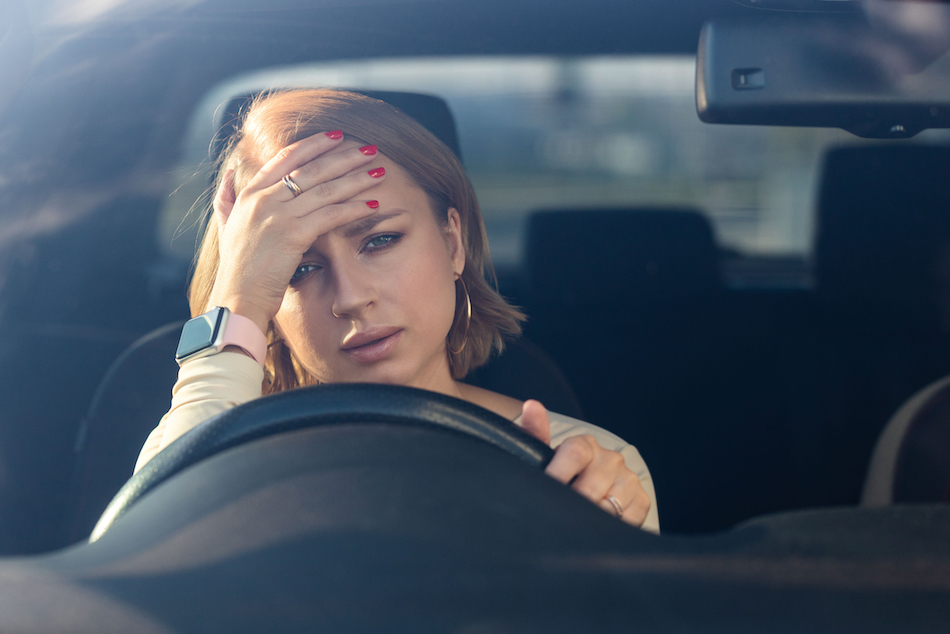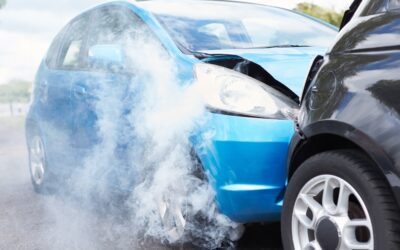You’ve probably seen the signs on the side of motorways, saying something like “tiredness kills, take a break”.
In this post we’ll examine the risks of driving tired and share some tips on how you can stay alert behind the wheel.
Driver Fatigue – The Facts
Driver fatigue is a serious issue. Road safety charity Brake estimates that tired drivers could account for up to 20% of all road accidents, which is why they claim that driver fatigue “could be as dangerous as drink-driving.”
Brake figures also suggest that 1 in 8 drivers admit to having fallen asleep at the wheel. Furthermore, driver fatigue appears to be more of an early morning risk than a late-night risk. Drivers are around 20 times more likely to drift off at the wheel at 6 am than they are at 10 pm.
The early afternoon is another high-risk time for driver fatigue. If you’ve got a normal sleep pattern, your body clock may naturally dip between 2 pm and 4 pm. During this time, you may struggle to concentrate.
It’s important to be aware of your own body clock and take action if you start to feel tired when driving.
How Dangerous is Driver Fatigue?
Tiredness affects your alertness and your reaction times. This can lead to you spotting potential hazards later, and when you do see them, you may not react in time.
Most crashes involving driver fatigue occur on motorways and dual-carriageways and therefore happen at higher speeds, meaning there’s a much greater risk of serious injury.
What Causes Driver Fatigue?
There’s more to driver fatigue than just “driving while tired”. Certain things can contribute to a feeling of drowsiness behind the wheel and make accidents more likely. Sleep patterns, stress, long periods of driving can all affect your ability to concentrate while diving.
We mentioned above how the time of day can make a difference, and how tiredness-related accidents may be more likely in the early morning and the mid-afternoon. But here are some other factors that can be contributors:
- Sleep Patterns – If you’ve got an irregular sleep pattern (from working shifts, for example), you may also have an irregular body clock. This could lead you to feeling unexpectedly drowsy at certain times of the day or night. A lack of sleep, or a disturbed sleep pattern, could also take its toll.
- Stress – If you’re experiencing stress or anxiety in any aspect of your life, it could affect your sleep. Stress itself can also cause tiredness and affect your abilities to concentrate.
- Medication – Check the side effects of any medication you take, whether it’s prescription or over the counter. Some medicine can cause drowsiness.
- Long Periods of Driving – Driving continuously for long periods can affect your concentration, either through boredom or fatigue. This is why it’s important to take regular breaks, even if you’re not feeling tired.
- The Car You Drive – Modern cars are comfortable and convenient. Sometimes they can be too comfortable or too Certain features, such as automatic transmission or cruise control, could also have an unwanted lulling effect.
Learn To Spot The Signs of Fatigue
You know how it feels to feel tired but there’s a risk that you may not realise just how tired you are, meaning you may choose to drive at a time when you really shouldn’t.
So look for the warning signs that you may be more tired than you think. Does your mind feel foggy, and are you having difficulty concentrating? Are your eyelids feeling heavy, and are your eyes beginning to roll? Are you yawning a lot, and is your head nodding?
Pay attention to what your body’s trying to tell you. If you’re body’s sending you signs that you’re tired, then you’re probably in no fit state to drive and you need to take a break.
How To Avoid Driver Fatigue
Don’t drive tired and don’t fight driver fatigue. It sounds obvious, but it might be easier said than done – especially if you work shifts, or if a life event, such as a new child, is affecting your sleep pattern.
Here are some general tips that could help you reduce the risks of getting driver fatigue:
- Aim to get at least 7 hours of sleep a night. And try to keep a regular sleeping pattern – going to bed and getting up at roughly the same time each day – so as to make your body clock as regular as possible.
- On long journeys, take regular breaks – at least once every two hours.
- On really long journeys, try and break your trip up with overnight stays, so that you won’t be driving through the night. Also, if possible, share the driving duties with another insured driver.
- If you’re struggling with sleep, refrain from using any technology that could take your mind off the road, such as cruise control.
- If you’re on any medication, be aware of any possible side effects, and follow any guidance to the letter.
What Should You Do If You Become Tired While You’re Driving on a Motorway?
You can easily fall into a lull when driving on the motorway. If you find you start feeling drowsy while driving on the motorway, it’s important to stop as soon as possible and when it’s safe but there are other things you can do in the meantime:
- Aim to stop as soon as possible. If there’s a service station near, stop there. But if not, consider leaving the motorway at the next exit, so you can at least find somewhere to pull up.
- In the meantime, stay in the left lane and slow down. If you’re feeling tired on the motorway, then the middle lane or the fast lane are likely the most dangerous places for you to be.
- Play some music and open your windows – the music and a blast of fresh air could give you a jolt of energy.
- When you do stop, take deep breaths of fresh air, and walk around to stretch your legs. If you’re at a service station, splash cold water in your face and get yourself a coffee or an energy drink. If necessary, have a short nap – not long enough to fall into a deep sleep, but substantial enough to overcome your drowsiness so you can safely continue your journey.
Car Insurance Considerations
If you have any medical conditions that could affect your sleep, or if you’re taking any medication that could cause drowsiness, make sure you tell your car insurance provider. That way, they can give you a level of cover that works for you.




